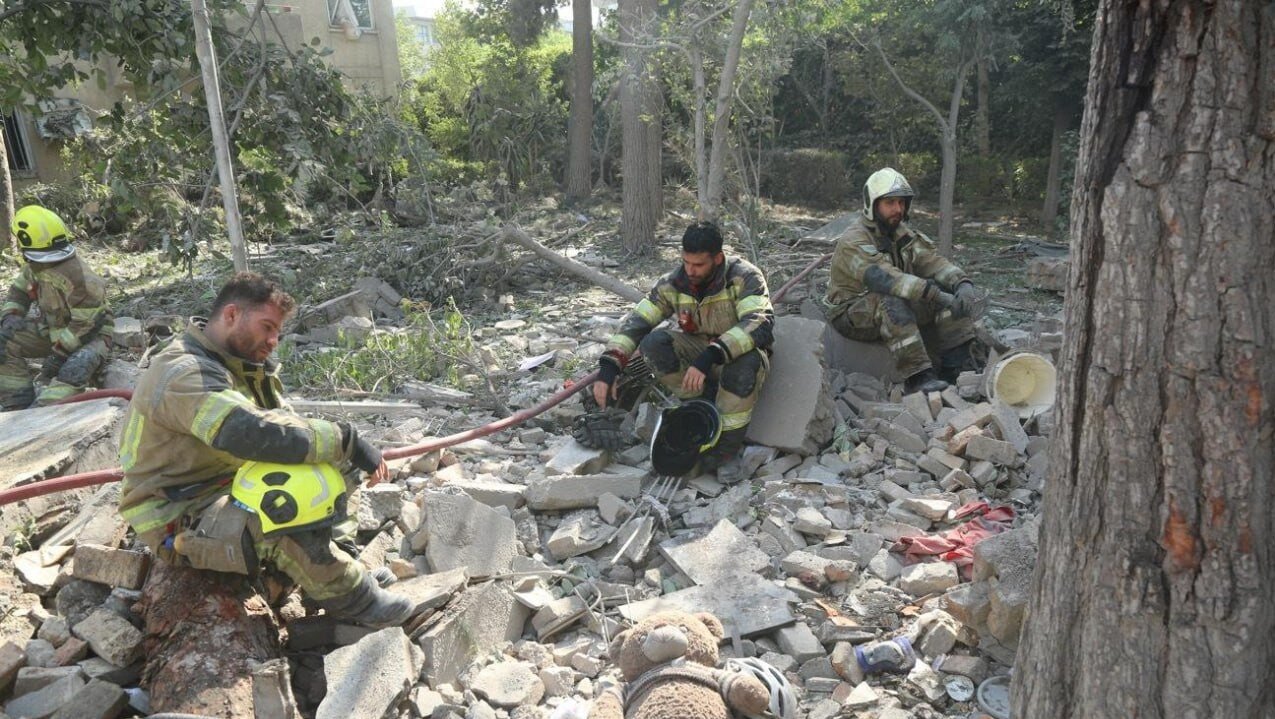Global condemnation floods in following Israel's blatant aggression on Iran

TEHRAN – In the early hours of Friday, the Israeli regime launched an unprovoked act of military aggression against the sovereign territory of the Islamic Republic of Iran, martyring revered commanders of the Islamic Revolution Guard Corps (IRGC) and prominent nuclear scientists, alongside civilians.
The strikes targeted civilian nuclear facilities and residential areas, violating all international norms and threatening to ignite regional conflagration.
Regional powers united against aggression
Pakistan strongly condemned the "unjustified Israeli attacks,” describing them as “a brazen violation of Iran’s sovereignty.”
In a post on X, Deputy Prime Minister and Foreign Minister of Pakistan Ishaq Dar stated that the attack “has shaken the foundations of international law as well as the conscience of humanity, and gravely undermines regional stability and international security.”
The statement added that “the assault on Iran is a flagrant breach of international norms and a threat to regional peace. Pakistan expresses firm solidarity with Iran in these testing times.”
Turkey’s President Recep Tayyip Erdogan branded the strikes a "clear provocation," accusing Netanyahu’s "massacre network" of setting the region ablaze.
The country's Foreign Ministry also noted that Israel "does not want issues resolved diplomatically."
Saudi Arabia denounced the attacks as a "clear violation of international laws," urging the UN Security Council to "immediately halt this aggression."
Oman, the country which has acted as a mediator in 5 rounds of Iran-U.S. nuclear talks, condemned Israel’s "dangerous and reckless escalation" as "unacceptable behavior undermining regional stability," holding Tel Aviv "responsible for this escalation and its consequences."
Qatar and the UAE joined the condemnation, with Qatar’s PM citing Israel’s "absurd actions" as threats to global security.
Egypt warned of "unprecedented repercussions" for West Asia's stability.
Iraq, whose country's airspace the Israeli warplanes reportedly used to attack Iran, demanded concrete UN action, stating: "Statements of condemnation are no longer sufficient."
Shia religious leader in Iraq Grand Ayatollah Sayyid Ali Sistani condemned the attacks by the Zionist regime and called on the international community to pressure this aggressor regime to prevent further such attacks.
Afghanistan’s interim Taliban government declared the strikes a "clear violation of international law," emphasizing they "fuel regional insecurity."
Russia called the strikes "unacceptable" and accused Tel Aviv of sabotaging diplomatic efforts on Iran’s nuclear program. The Foreign Ministry stressed: "Unprovoked strikes against a sovereign state violate the UN Charter."
United Nations Secretary-General António Guterres condemned the "military escalation," expressing grave concern over attacks on nuclear facilities during ongoing U.S.-Iran talks.
IAEA chief Rafael Grossi—despite Iran’s distrust of his politicized coordination with the Israeli regime paving the way for an anti-Iran Board of Governors's resolution on Thursday—offered to visit Iran for damage assessments.
Resistance stands firm
Hezbollah condemned the "dangerous escalation" as a product of full U.S. sponsorship, declaring: "This enemy abides by no logic or laws, and it only knows the language of murder, fire, and destruction."
The Lebanese Resistance group affirmed full solidarity with Iran, warning that Israel’s aggression "undermined all efforts for regional stability."
Palestinian Resistance group Hamas echoed this stance, stating the attack "stems primarily from Iran’s support for the Palestinian people" and reaffirming that Israel "poses an existential threat to the entire region."
Abu Obeida, the spokesman of the group's military wing Al-Qassam Brigades warned: "The Zionist enemy is deluded if it believes these treacherous strikes can undermine the Resistance Front."
Western complicity and double standards
U.S. President Donald Trump exposed Washington's coordination and authorization by admitting he gave Iran a 60-day nuclear ultimatum before the attack, threatening: "The next planned attacks [will be] even more brutal."
His Truth Social post gloated, "Certain Iranian hardliners are all DEAD now," revealing a disturbing enthusiasm for the martyrdom of Iranian commanders and scientists.
Trump’s coordination with Israel and his threats of further brutal attacks starkly contradict his earlier presidential campaign promises to end “stupid forever wars” in West Asia.
Even as Iran participated in five rounds of indirect nuclear talks with the U.S.—a clear demonstration of its commitment to diplomatic resolution—his actions expose a blatant abandonment of his declared positions.
France’s Emmanuel Macron claimed concern for de-escalation while declaring France "reaffirms Israel’s right to defend itself" and condemning Iran’s peaceful nuclear program .
Britain’s Keir Starmer offered hollow appeals for "restraint" while refusing to deny prior knowledge of Israel’s strikes.
Germany’s Friedrich Merz parroted the line of Israel’s "right to defend its existence," even after Netanyahu personally briefed him on the assault.
European Commission President Ursula von der Leyen termed the situation "deeply alarming" yet tellingly urged "all parties"—not Israel—to exercise restraint.
EU foreign policy chief Kaja Kallas vaguely offered to "support diplomatic efforts," ignoring Iran’s sovereign right to self-defense even after Israel violated its sovereignty.
The Western powers’ tepid calls for "restraint" ring hollow against their long-standing enablement of Tel Aviv's warcrimes especially during the last 600 days in Gaza, Lebanon, Yemen, and Iran.
